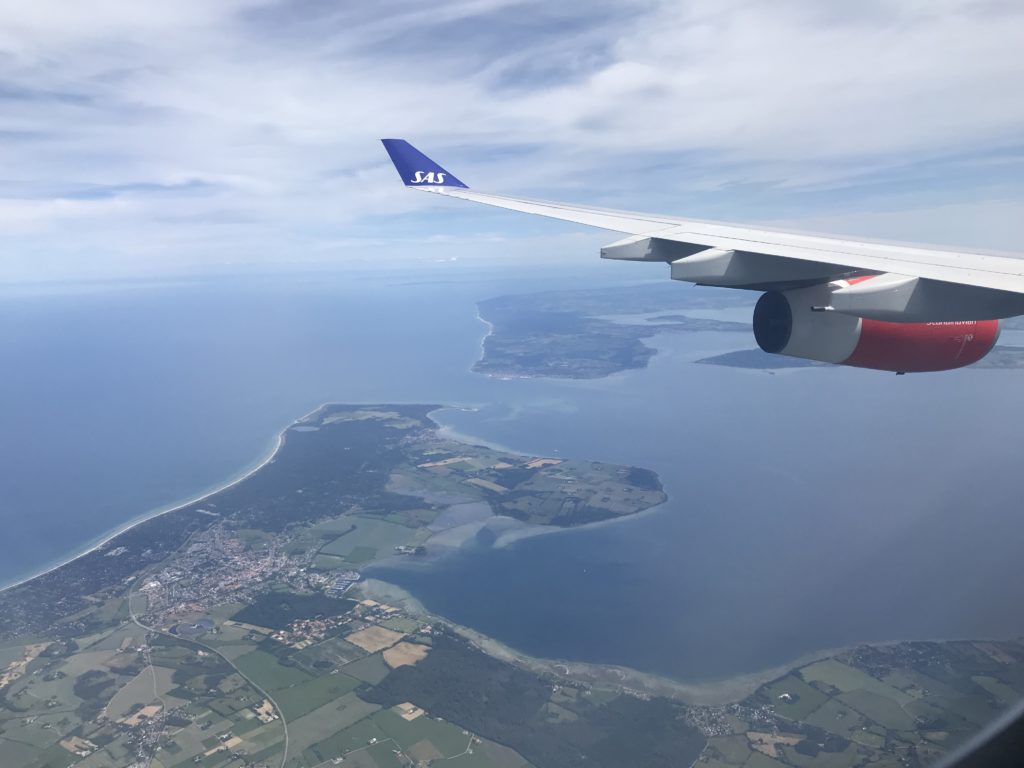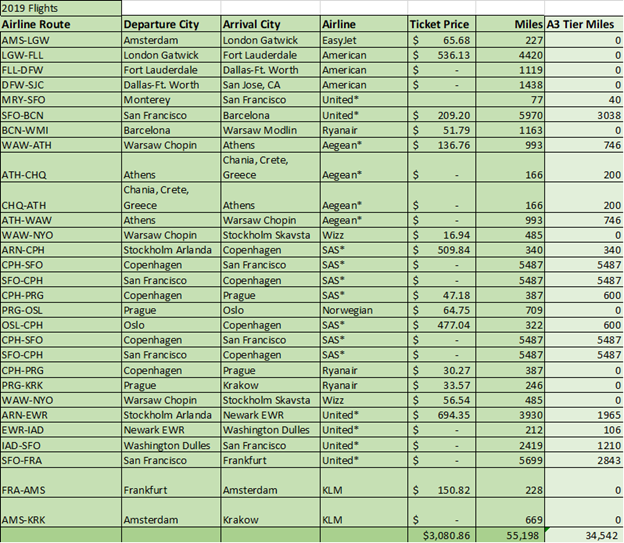My air travel dropped by more than 25% in 2019 to 55,000 miles compared to 75,000 miles flown in 2018. The reduction in air travel was my choice. A large part of that decrease in air travel was due to the influence of climate activist Greta Thunberg. Climate change activism news and a series of feature articles by The Guardian motivated me to spend many hours of time in 2019 researching science-based analysis on the impact of air travel contributions to climate change. What I learned set a rethink for my need to take advantage of a cheap fare and fly away from the USA six or seven times a year. Mentally, I still desire to get away. Logically, I feel compelled to restrain myself. Monterey is one great place to be physically stuck in and simply being by the sea offers mental refreshment for the soul.
$3,081 with four trips to Europe traveling through ten countries is arguably still a large air travel footprint. I don’t see my transatlantic air travel dropping in 2020 with three trips already planned by summer and a likely domestic cross county trip this spring to visit New England and Quebec for ancestry research.
My primary objective for 2019 was qualifying for Aegean Gold elite with Star Alliance Gold elite benefits. I met that objective in March 2019 with a four segment Aegean ticket flying Warsaw to Crete. Then, I requalified for Aegean Gold elite again in December 2019 with 24,000 Star Alliance Tier Miles. My Aegean/Star Alliance Gold elite status is set through March 2021.
Star Alliance Gold elite allows me access to Star Alliance airport lounges around the world with my wife when flying Star Alliance airline members, including United Club when flying United Airlines on USA domestic flights. I also receive Priority Boarding 1 on United and Star Alliance operated flights and the benefit of one free checked bag on most tickets.
So far, I have not taken advantage of the free checked bag benefit. Except for my initial EasyJet flight, where it was necessary to pay for a checked bag, 2019 was nearly a full year traveling with only two carry-on bags, one for the overhead bin and my backpack for under the seat. The real success story of 2019 air travel with my wife is she also managed the year with only carry-on bags. I simply pack one of her two liquids and pastes quart size bags in my luggage.
- 55,198 flight miles on 10 differest airlines: Aegean/Olympic, American, British Airways, easyjet, KLM, Norwegian, Ryanair, SAS Scandinavian, United, Wizz.
- 10 international countries visited: Czech Republic, Denmark, Germany, Greece, Netherlands, Norway, Poland, Spain, Sweden, United Kingdom.
- $3,081 spent on airline tickets. All flights were paid flights with no frequent flyer miles redeemed for flights in 2019.
- Earned Aegean Miles+Bonus Gold elite in March 2019 and requalified in December 2019 through March 2021.
- Aegean changed their Tier Points earning for SAS Scandinavian Airlines in fall 2019 making GoLight fares ineligble. Simply buying up to GoSmart with the benefit of one free checked bag for about $60 round trip per transatlantic ticket is not too much more to continue earning Aegean Gold cheap elite in 2020 with 12,000 Tier Points + 4 Aegean/Olympic flight segments or 24,000 Tier Points without Aegean flights. Two SAS Scandinavian SFO-Stockholm $500 round trip tickets can still earn 24,000 Tier Points under the revised current Aegean Miles+Bonus program rules.





3 Comments
Comments are closed.